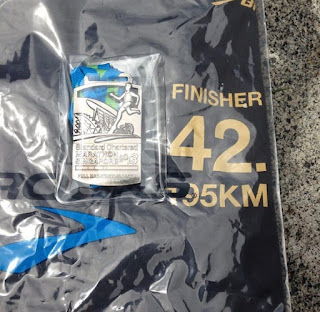My Training plan

My running resume and statistic
I'm 31 year old Male. 169cm, 71kg.
From 2013 to current date, I have
5 x Ultra (52km x 3, 60km x 1 and 80km x 1)
4 x Marathon Finishes - PB at 5hr12m
3 x Half Marathon Finishes - PB at 2hr32m
4 x Run for Hope 10km - PB at 58min
I am by no means a fast runner. I believe there are many out there who are much better runner than me, even on a ultra marathon level. In fact, I totally sucks balls at anything below 21km as I cannot run fast. My strength is endurance. Even then, until now, I still struggle to do a sub 5hr marathon.
Due to the 12-shift nature of my work, my working days tend to be a little screwed up. I am not able to train at all on my working day. However I have 7 off days every 2 weeks which is a huge deal because I am able to get plenty of long run in.

The theme of my training is effort. Effort as in time spent on feet. The longer the better. There is no pace goal for my training. It is time and mileage based. As weeks goes by, more time will be added to each session.
Distance
As you can see, I'm doing back to back long runs once every two weeks. During the MDS, the first three stages are the easy part. Each of the first three stages are about 30km long. The key deciding factor of the MDS is to survive the Stage 4 (86.2km) and still have spare energy to run a full marathon the next day (stage 5). Towards the end of my training, I am looking cover 2 x 50km back to back runs.
All my sessions are done in the morning starting at 10am. This is to ensure that as I reach towards the end of my run (around 12noon-1pm), I will be getting as much heat from the sun as possible.
All my sessions are done with my backpack (the one that I'll be using for the actual race). It is currently filled with a pack of 10kg rice, to mimic the actual expected weight.
However, my runs are currently done on pavements. I will start training on sand around October. The key thing now is to be able to run 2 x 42km back to back.
Heat
Majority of MDS competitor are from UK and France (the organizer is a French). Most of them have not experience anywhere close 40-50 degree Celsius. I am quite fortunate to be living in Singapore because we do have hot weather all year round. I am not under constraint to train during summer or travel elsewhere. However, as hot as Singapore may be, it is nowhere near sahara heat even if I am running at the hottest point of the day.
Sand
I always try my best not to always run on pavement but we don't really have much trails route here. I usually run around Bedok reservoir as there is a stretch of rocky trails and grass. I live in woodlands but there's a direct bus to Bedok Reservoir. Eventually I will scout a route at Sembawang Beach for the real sand experience. For now, I am still trying to get the distance in.
Hills
Hills and stairs sessions are very important and the MDS route have a lot of steep sand dunes to climb.
For power hiking session, there's a street near my house with a pretty good incline and distance. I just powerwalk up and down that street. Stairs sessions are done at overhead bridges or HDB. I tend to stay away from HDB as I might get complained for making too much noise. Bedok reservoir also have hilly areas for powerhiking.
Knowing yourself
While getting the session done is definitely crucial. The most important thing is to be injury free. You need listen to your body and know what it is telling you. When you should start hydrating yourself. When you should take an isotonic drink. When you should start eating your energy bar. What I realized during my training is that, if you only start drinking when you're thirsty, it's usually a bit late. And this can have lasting impact if I am running 3.5hour. This kind of little issue will get amplified exponentially on the actual MDS. You need to know when to start eating so you get the required energy when you need them. All these are trial and errors. I will also be power walking a good portion of the race. And you cannot start walking only when you feel tired. In a marathon, you can drag your feet across the last 10km, but in a multi stage ultra, you can't.
The whole training program is mainly also about getting to know your body.
Typical Running Day




Comments
Post a Comment